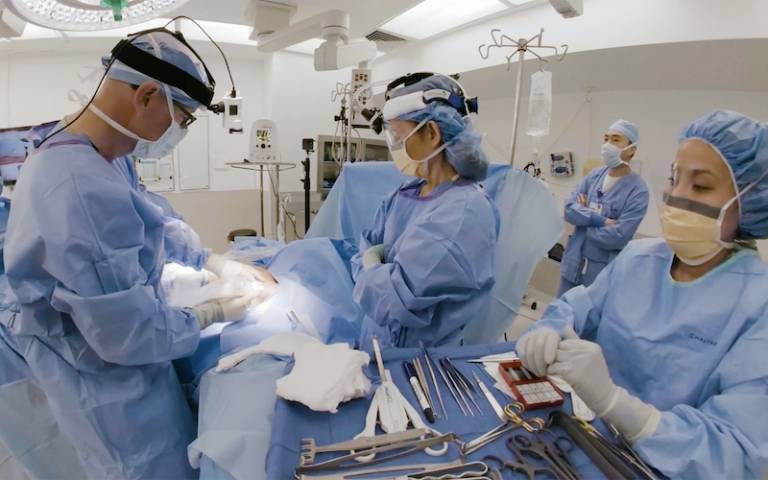Magnetic nanoparticles research successfully applied to better cancer diagnosis and care
UCL’s groundbreaking research and development of magnetic nanoparticles for biomedical applications led to the introduction in 2012 of the world's first licensed nanoparticulate injectable medical device, the Magtrace® tracer, and its detection system, the Sentimag® probe.

A UCL spinout company, Endomag has now established itself as a leader in its field after introducing this new technology to better diagnose and treat cancer without the need for invasive surgery. The system uses magnetic materials, rather than radioisotopes, to locate the sentinel lymph nodes that are the key indicators of the spread of cancer away from the primary tumour site.
As well as improving patient outcomes, the system considerably improves hospital workflow and efficiency. This is because unlike radioisotopes, the injectable magnetic tracer (Magtrace) is readily available and requires no special handling or hospital licensing.
Since its research at UCL, Endomag has gone on to develop a further innovative application using magnetics to help mark and locate potential cancers. The Magseed® marker, also used with the Sentimag® probe detection system, is a tiny magnetisable seed that is placed in the cancer for patients about to undergo a breast lumpectomy surgery. The Magseed provides surgeons with an incredibly accurate pinpoint location of the tumour for removal in surgery.
The use of these technologies at over 350 cancer centres across 30 countries have already made a significant difference to over 60,000 people suffering with cancer and in recognition of this, the company was awarded a Queen's Award for Enterprise in 2018 for innovation.
Links
- UCL news story
- Endomag website
- Professor Quentin Pankhurst’s academic profile
- UCL Innovation & Enterprise
Image
- Credit/Source: Endomag
 Close
Close

